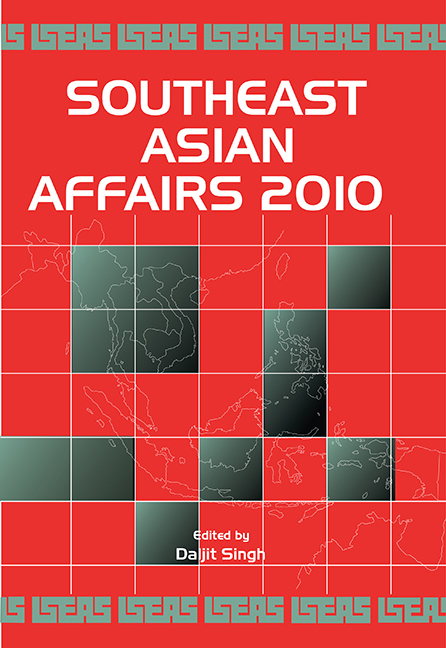Timor-Leste in 2009: Marking Ten Years of Independence or Dependence on International “Assistance”?
from TIMOR-LESTE
Published online by Cambridge University Press: 21 October 2015
Summary
The progress on tackling the residual problems of the 2006 political and security crisis helped Timor-Leste enjoy relative stability in 2009. This is evidenced by the generally calm security environment with almost no instances of violence, closure of all the camps for internally displaced persons (IDPs), and the availability of critical commodities such as fuel and rice at affordable prices subsidized by the government. The improvement in the security environment is also mirrored in positive public perceptions reported in a country-wide opinion survey, in which over four-fifths (87 per cent) of 1,120 respondents indicated in December 2008 that they felt safer in their communities compared to 2006.
Little progress, however, was made towards addressing the structural problems that triggered the 2006 crisis. These include the reforming of the security institutions, strengthening the rule of law, and alleviating poverty. The already-flawed security sector reform, focusing on the handover of policing responsibilities from UNPOL (United Nations Police) to PNTL (National Police of Timor-Leste), was complicated by increasingly strained relations between the AMP (Parliamentary Majority Alliance) government and UNMIT (United Nations Integrated Mission in Timor-Leste) in 2009. The release of an ex-militia member on 30 August, the day that marks the tenth anniversary of the UN-sponsored vote for independence, once more highlighted the continuing challenge of establishing an independent justice system with the capacity to sustain the rule of law within society.
According to International Monetary Fund (IMF) estimates, the country achieved a 12.8 per cent growth rate in the non-oil gross domestic product (GDP) in 2008, which has proudly been cited by the country's leadership to illustrate the economy's improving health. But this growth was largely driven by increased domestic consumption, fuelled by the government's injection of more oil money into the economy in the form of public transfers, subsidies, and infrastructure spending rather than an improvement in the production capacity of the economy. Furthermore, most of the recovery and development initiatives have so far been concentrated in the capital Dili, while there has been almost no substantial improvement in the infrastructure and living conditions for the majority of the population residing in dispersed rural areas, something which I also personally witnessed during my short visit to the country three and a half years after my first visit in February 2006.
- Type
- Chapter
- Information
- Southeast Asian Affairs 2010 , pp. 345 - 364Publisher: ISEAS–Yusof Ishak InstitutePrint publication year: 2010



